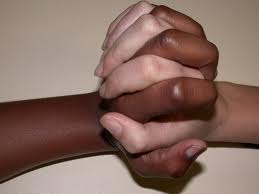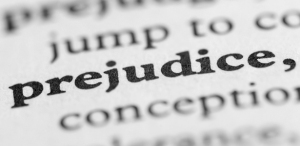 I wish that I knew how we could move on in our country. I wish I knew how we could bring healing to the racial tension that has existed for years. I wish Americans who happen to be African American did not have to experience the continual frustration and demeaning of being constantly questioned for their skin color.
I wish that I knew how we could move on in our country. I wish I knew how we could bring healing to the racial tension that has existed for years. I wish Americans who happen to be African American did not have to experience the continual frustration and demeaning of being constantly questioned for their skin color.
The latest claim of racial profiling has taken place in an upscale Los Angeles neighborhood, home to stars like Steve Martin, George Clooney, and Miley Cyrus. An actress who starred in the Tarantino film “Django Unchained” as well as having appeared in some roles on television was detained after police received calls about a sex act being performed in a Mercedes between a white male and black female. The actress, Daniele Watts, refused to give police her identification and was detained. According to police, her temporary detention was because of her refusal to present identification, although it did result in minor injuries from her handcuffs.
We’ve all heard the stories of Hollywood stars getting unruly when confronted by police. There’s no story there. But no matter what anyone says, there is enough tension lying beneath the surface in our country that every single time that someone who is not Caucasian is stopped, pulled over, or questioned there will ALWAYS be a question of what was motivating the officers who stopped them. Would this even be a story had the woman in question been Caucasian? I doubt it, but that doesn’t negate the importance of this story either.
I’m not naïve enough to think that there aren’t multiple layers to this story. How sensitive and communicative was the responding officer? Was he hostile? Did Watts’ hostility start right out of the gate? Was she provoked?
I honestly feel for both sides here. I feel bad for the officers who are trying to do their job every day in our country. I feel for them who will be criticized if they come across as anything less than accommodating to anyone whose skin is darker. At the same time, I feel bad for every person whose skin is darker than mine who is constantly wondering how their skin color affects the perception (or misperception) of people who can’t see past it.
I don’t know what it’s like to walk around with knowledge that people are suspicious of me simply because of my skin color. I don’t know what it’s like to have been rejected or passed over because of my skin color. I don’t know what it’s like to be fearful that my strengths, gifts, and abilities may be passed over because of my skin color rather than because my skills fall short of someone else’s.
How do we move on though? The racial tensions in our country seem to be rising to a higher level, or maybe it’s just that we are more sensitive to and aware of them because our president is African American. Regardless of the reason, the question becomes, “How do we respond to them?”
Just like every other problem with a significant history, we don’t move on overnight. We didn’t get here overnight, so we shouldn’t expect that we will wake up tomorrow and everything will be hunky dory. It’s too easy for those of us who don’t experience racism on a day to day basis to have an “out of sight out of mind” mentality. If we don’t see it or hear it, that doesn’t mean that it doesn’t exist. But we can only move through it, not past it. We need to experience this together; we need to acknowledge that it’s there regardless of what our own ideology might be. We can’t brush it under the carpet no matter how insignificant we might think it is, no matter how much we might feel that it’s distorted.
All it took for me to see another side of this was a conversation with a friend and mentor who is African American. I asked the question that I have asked of myself time and again, “What am I missing?” So, I spent time on the phone with my friend and mentor and he began to tell me his experiences of discrimination. This man who I had grown to love and respect, this man whose intelligence far exceeds my own, this man whose kindness and love was seen almost immediately when getting to know him, this man had experienced discrimination that seemed impossible to me……..but it wasn’t.
We fear what we don’t understand. So, it would follow that we can reduce our fear by gaining a deeper understanding. I am blessed to have had some of the friendships and relationships that I have with many great people who have helped me to gain a deeper understanding, but I’ve certainly not arrived. It’s not enough for me to simply learn for myself, I have a responsibility to pass on what I learn. There are three kids in my house who can make a difference for the future, what am I doing to help them see things differently?
I don’t know how to tackle this seemingly insurmountable obstacle of racism. I will never fully understand what others experience, but that shouldn’t stop me from trying to understand a little more. The more that we come together to try to understand, the more we can fight racism.
Martin Luther King, Jr. had a dream, I wonder when that dream will be realized.
